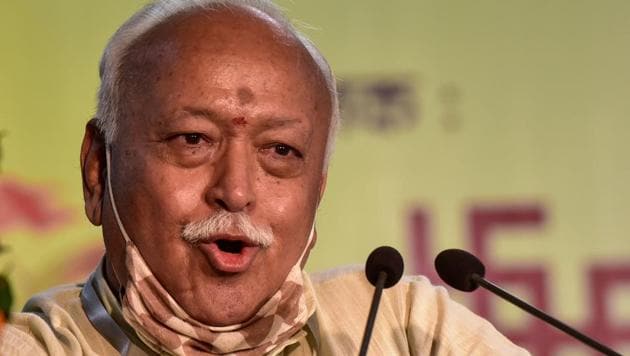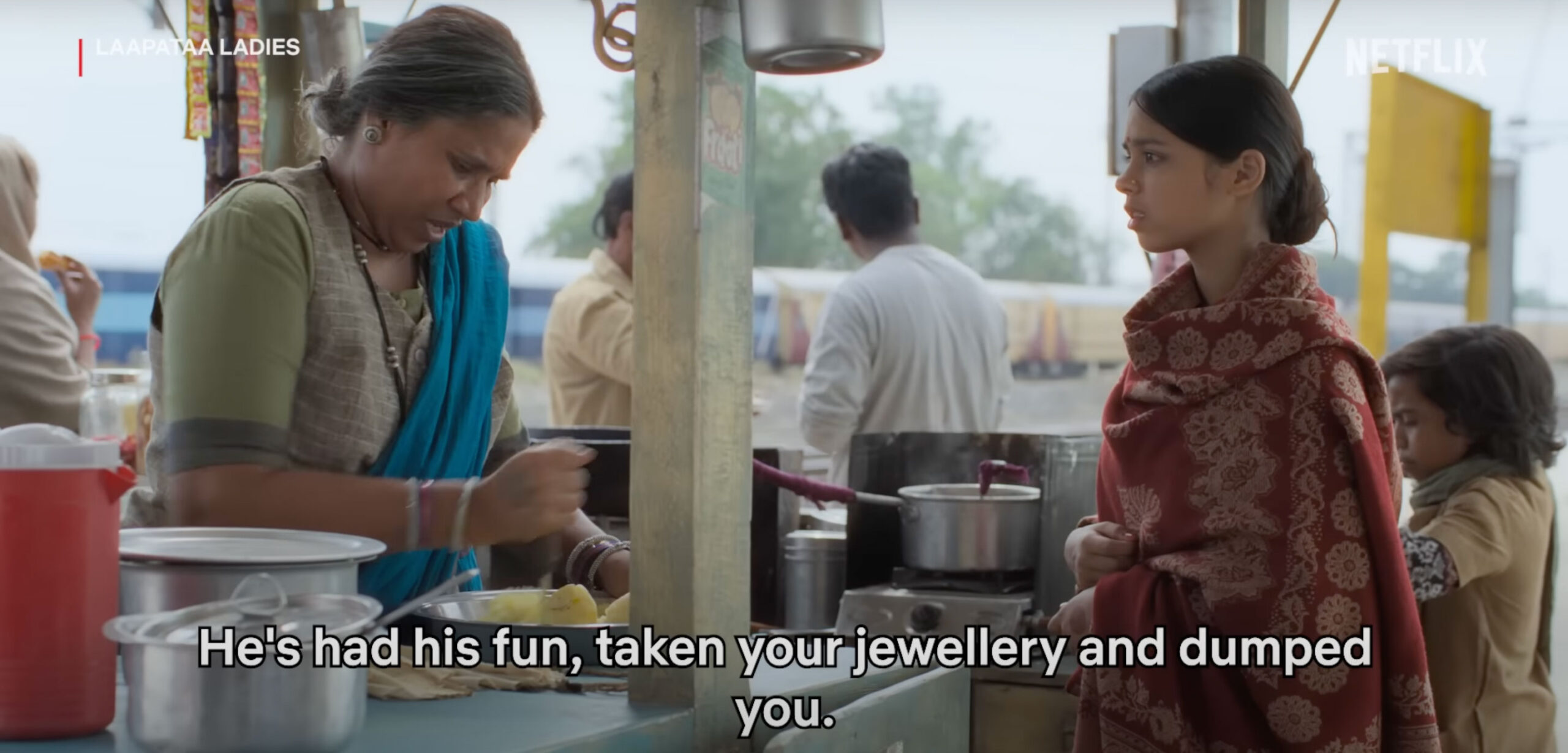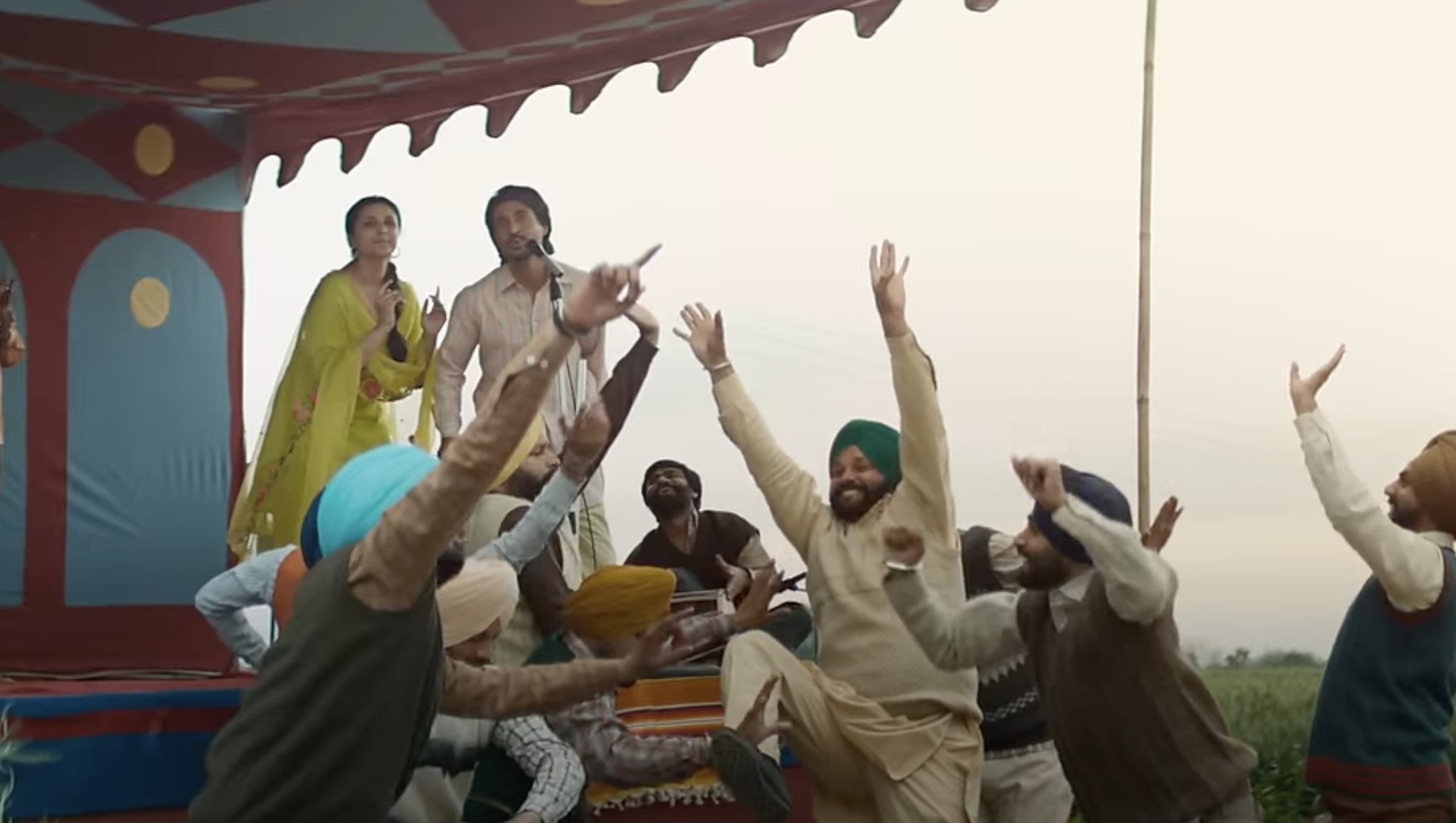Few Brahmins can gather the courage to say what the Rashtriya Swayamsevak Sangh (RSS) supremo Mohan Bhagwat said recently. Speaking at a function to mark Ravidas Jayanti in Dadar, Mumbai, he said that castes were not made by God but by pandits, and that in the eyes of god, all men are equal. His statement came at a time when a big row was kicked up over Tulsidas’ Ramcharitmanas, and its pages in which Shudras were humiliatingly referenced were being burnt in many parts of Uttar Pradesh and Bihar. Lest this controversy adversely impact the electoral fortunes of the Bharatiya Janata Party (BJP) in the General Elections, Mohan Bhagwat was trying to do some damage control.
However, his statement blaming the pandits for the caste system rattled the Brahmins to no end. Keen to ensure that it didn’t rub the Brahmins the wrong way, RSS’s Akhil Bharatiya Prachar Pramukh (All India Publicity Chief) Sunil Ambekar immediately came out with a statement saying that by “pandits”, Bhagwat did not mean Brahmins, but scholars. He said Bhagwat was speaking in Marathi and “pundit” in Marathi means a scholar, not a Brahmin.
Obviously, the RSS doesn’t have the courage to say that “pandit” means Brahmin. In our country, “pandit” is a synonym for “Brahmin”. Only Brahmins are addressed as pandits, not Thakurs or Vaishyas. The names of Brahmins are prefixed with the word “pandit” – Pandit Ramchandra Shukla, Pandit Mahavir Prasad Dwivedi, Pandit Makhanlal Chaturvedi, Pandit Jawaharlal Nehru, Mahapandit Rahul Sankrityayan and so on. Namvar Singh, Sukhdev Singh, Kedarnath Agarwal, Rammanohar Lohia, Rajkishore, Dharamvir and Tulsiram were never addressed as pandits. So, Sunil Ambekar’s clarification is bereft of any significance. Brahmins know that they are pandits and that the pandits are Brahmins. That is why the Brahmins of Benaras submitted an application to the Kotwali Police Station, seeking registration of a case against Mohan Bhagwat. The Varanasi unit of the Akhil Bharatiya Brahmin Ekta Parishad said that the Brahmin community was feeling humiliated by Mohan Bhagwat’s comment on pandits. Anything that goes against them hurts the Brahmins. However, they never felt the pain of the Dalits and the women. The Varna system consigned the Shudras to serfdom for thousands of years and even now, they are insulted at every step. It was not long ago that the official residence of the chief minister of Uttar Pradesh was “purified” by washing it with Gangajal, as its tenant, Akhilesh Yadav, was a Shudra. But this pain and misery of the Shudras that lasted centuries never affected the Brahmins. The Brahmins never conceded that like them, the Shudras, too, are humans. If the Brahmins did not create the caste system, then, pray, who did? Who thrust the caste system on society, dubbing it as a divine ordainment? Did the Muslims do it? The Brahmins were the very inventors of the caste system.
Centuries have passed but still the Brahmins are not ready to accept their guilt. And when Mohan Bhagwat, who, by the way, is a Brahmin, calls a spade a spade, the Brahmins react with anger.
If Mohan Bhagwat is wrong about Brahmins being the creators of the caste system, let the Brahmins contradict him with incontrovertible evidence. They should also tell us who created the four Varnas. The fact that the Brahmins are perched on the top of the Varna system itself shows that they were its creators. Had the Kshatriyas created the Varna system, they would have put themselves at the top. If Vaishyas had created castes, in their system, they would have been at its pinnacle. If the caste system was a creation of the Kshatriyas or the Vaishayas, it would never have accorded the highest place to the Brahmins. Of course, this is pure speculation, for had Brahmins not created the caste system, there would have been nothing like Kshatriyas, Vaishyas and Shudras. Yes, classes based on occupation would have been there. But castes based on birth would have been non-existent.

One can quote the Bhagavad Gita to claim that Krishna created castes. In the fourth chapter of the Gita, Krishna says, “I am the creator of this Chaturvarna system.” Krishna was not a Brahmin. He was an Ahir. So, did an Ahir create the caste system? The chances are very low because why would an Ahir accord the highest place to Brahmins? There is another argument that goes against Krishna’s claim. According to the brahmanical division of history, Krishna lived in the Dwapar age. The Treta age preceded Dwapar. It was in the Treta age that Ram descended on this earth. Ram killed Shambuk because the latter, a Shudra, was violating the tenets of the Varna system by performing penance. This, obviously, means that the Varna system was very much in existence even in the Treta age. This falsifies Krishna’s claim that he had created the Varna system. Of course, the Gita was authored by a Brahmin and it was he who put these words in Krishna’s mouth.
Mohan Bhagwat’s statement also proves the Tenth Mandal of the Rigveda false, for its 90th verse says, “Brahma originated from Aadi Purusha, and from Brahma’s mouth originated Brahmins, from his arms, the Kshatriyas, from his thighs the Vaishyas and from his feet, the Shudras.” Brahma is none other than the Brahmin. Brahma and Brahmin are synonyms again. The Upanishads repeatedly tell us that Brahmin is Brahma and Brahma is Brahmin. Mudra Rakshas, in his exploratory book Dharmgranthon Ka Punarpath, writes, “The fact is that the Brahmin thinker, negating logic and scientific reasoning, makes an impossible attempt to prove the wisdom of Brahm Gyan. This endeavour is directed at fulfilling his specific needs. One of them was to link the Brahmin directly with Brahma, in fact, proving that Brahma is just an image of Brahmin. Then, he wants to say that whatever he, a Brahmin, does or says is Brahm Gyan. To prove the glory and the greatness of Brahma, he also found it necessary to say that everything is born of Brahma, exists because of him and will merge with him at the end. That is why, he wrote in the Taittirīya Upanishad, ‘Namo brahmane, tvameva pratyaksham brahmasmi’ [Salutations to the Brahmin, for he is the visible Brahma]. Not only that, whenever brahma gyan was referred to, Brahmins were described as its repository. In this situation, Brahma cannot be said to be shapeless, unchanging and formless because at intervals, the Brahmin keeps reminding us that he himself is Brahma.”[1]
When Brahmin is Brahma and is the repository of Brahma Gyan, then, obviously, Brahmin was the creator of the caste system.
Mohan Bhagwat’s statement also falsifies the Manusmriti, because its very first chapter says that the four varnas were created by Brahma. Here, Brahma is not a god but a reflection of the Brahmin and is essentially Brahmin. That is why “Brahmin hatya” (killing of a Brahmin) was called “Brahma hatya”. The 11th chapter of Manusmriti clarifies the situation even further. It says that Brahm is Brahmin and Brahmin is Veda. Then, how can one contradict Bhagwat’s contention that castes were the creations of Brahmins?
Now, let us discuss the second part of Bhagwat’s statement, that God did not create castes. Could God have created castes? The answer is a firm “no”, for if God is the creator, then he is not formless, unchangeable and shapeless. Rather, such a God is “sagun” (possessor of qualities or attributes). The God of the Muslims and the Christians is sagun, considered to be the creator of the Universe. But Allah or the Christian God did not create a human society in which there were inequalities, in which some were at the top of a hierarchy and others were at the bottom. All humans created by God were equal. This is the quality of an ideal god. But the Hindu religion does not believe in a god for whom everyone is equal. It was to undermine the influence of the monotheism of Islam and Christianity on Indians that the Brahmins came up with the concept of Brahma, and Acharya Shankar said that Brahma is one and no other and that he is the ultimate truth and is omnipresent. But Shankar did accept the Varna system. Thus the Brahmins, despite accepting Brahma as omnipresent, did not let go of the Varna system. Ambedkar talks about this in detail in the 22nd Riddle in his treatise Riddles in Hinduism. The readers would do well to read it.
In the medieval age, which is also called the Bhakti age, both the Nirguna and the Saguna philosophies prevailed. Nirgunvad was propounded and propagated by the Shudras, while Brahmins were the followers of Sagunvad. Kabir, while interpreting the Nirguna god, wrote that bringing about the birth or death of any living being, creating the universe and destroying it, are not his attributes. He has no Varna, no caste, no clan and no gotra. He doesn’t live in any particular world. He is all-pervasive. Hence, there is no “other world” where he lives. Thus, a god who doesn’t cause the birth of any living being cannot be the creator of castes. Even if, for argument’s sake, it is conceded that God is the creator and the controller of this universe, the question that arises is why he would create castes. What would be the purpose? He wouldn’t do anything for no reason. What could be the reason for creating caste? And if God does indulge in this kind of an act, won’t it make Him immoral? What is certain is that it is the Brahmins who created caste and it is they who don’t want the annihilation of caste. They are always vigilant, lest any attempt to end the caste system succeed. Brahmins want to sustain the caste system because it is advantageous for them. It ensures that they are always part of the ruling class. They will never end this system. It is to strengthen it that they oppose reservations for Dalits and OBCs, and bring pressure to bear upon the government to end the reservation system.
Mohan Bhagwat’s statement won’t help dismantle the caste system. The way the Brahmins have freaked out over the statement is ample proof that they would not allow the termination of the caste system at any cost. They have put hundreds of thousands to death in the past for having revolted against the caste system and buried their memories deep. Mohan Bhagwat is no match for them.
For the Brahmins, Bhagwat’s claim that all are equal in the eyes of God is meaningless. They believe in a god which is saguna. They do not believe in a god that stands for equality. They believe in incarnations. They worship Rama, Krishna, Shiva, Durga, Hanuman and other gods and goddesses who do not believe in equality. Their gods are backers of the Varna and the caste system.
Before concluding, it would be pertinent to mention that Bhagwat did say that castes were created by the pandits, but he did not say that the caste system must be abolished. Had he talked about ending the caste system and insisted on destroying the Hindu scriptures which stand for the caste system, we could have claimed that we have a Voltaire among us. But he said nothing of the sort. The caste system cannot be brought to an end without consigning the scriptures that advocate it to the dustbin.
References
[1] Mudra Rakshas, Dharmagranthon ka Punarpath, 2004, Itihasbodh Prakashan, Allahabad, pp 84-85
(Translated from the original Hindi by Amrish Herdenia)
Forward Press also publishes books on Bahujan issues. Forward Press Books sheds light on the widespread problems as well as the finer aspects of Bahujan (Dalit, OBC, Adivasi, Nomadic, Pasmanda) society, culture, literature and politics. Contact us for a list of FP Books’ titles and to order. Mobile: +917827427311, Email: info@forwardmagazine.in)





